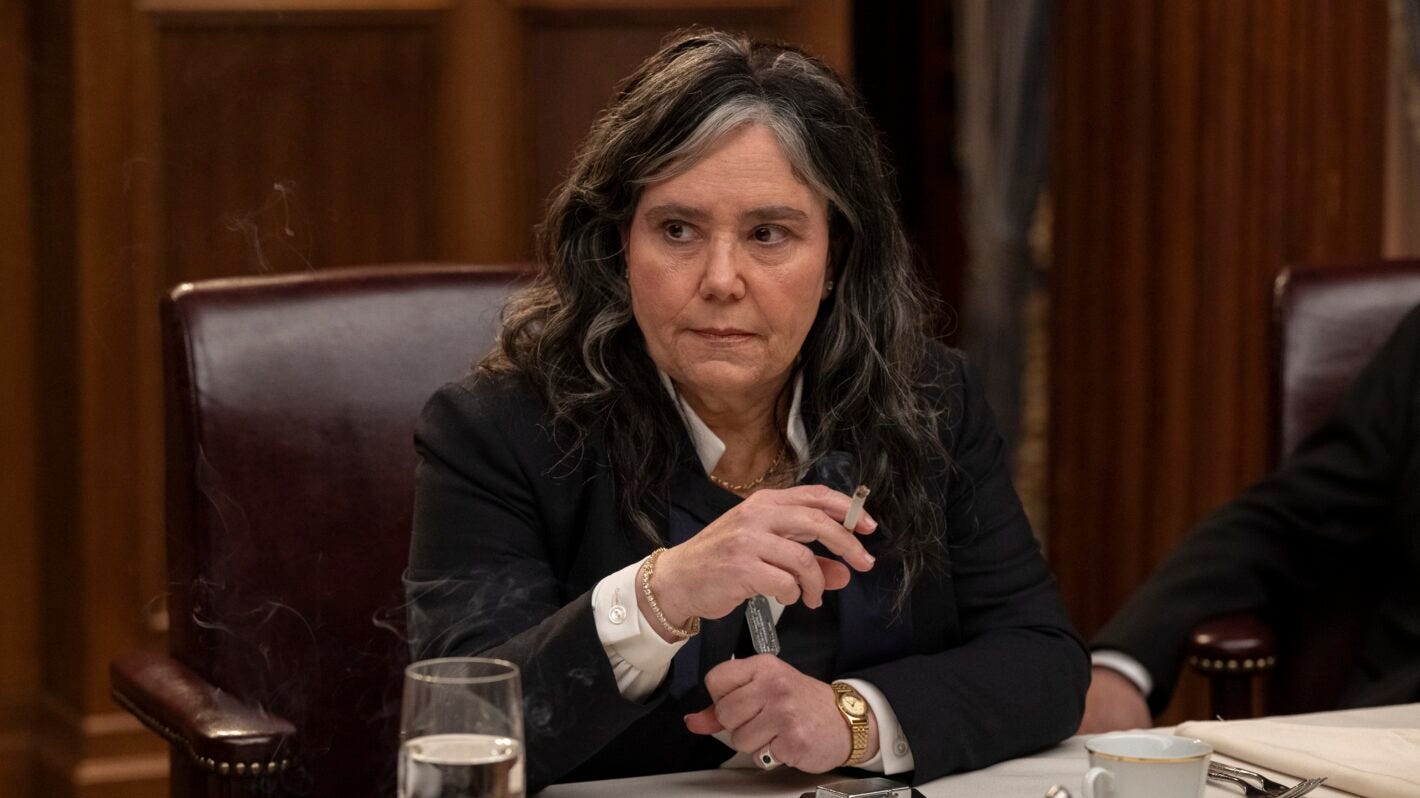Roasting Your Fandom: How to Find Humor in Beloved Content
Diana Franco explores the comedic tradition of roasting our favorite tv and movie franchises as entertainment and how it can deepen our love for them.
A few months ago, I watched a movie on Netflix starring Reese Witherspoon and Ashton Kutcher called Your Place or Mine. I was pretty excited to dive in: the cast was full of my favorite actors and the premise sounded delightful. And what’s more fun than a new rom-com to devour on a Friday night? I grabbed my favorite snack and settled in.
About halfway through the movie, I started laughing, but not for the right reasons. I didn’t think it was a great, or even good, movie. Some other emotion took over: I wasn’t hating the experience, but I also wasn’t loving the film. I was internally making fun of every confounding detail as I watched. A few days later, I was talking to my friend Hunter Boyle about it, and we both agreed it was a fun movie–but also that it wasn’t very good, by our standards anyway. So we had an idea: to host a watch party of the film via the Remarkist app for one reason: to point out all the things about it that we found hilarious and confusing. We wanted to roast it–with others. To be clear: we didn’t hate the movie, nor did we hate watching it. We had a really fun time. But our fun was based on poking fun at the movie itself. We had a fiery roast, and the subject in the hot seat was this adorable film.
The Roast: Equal Parts Tribute and Mockery
In the fifth and final season of The Marvelous Mrs. Maisel, there’s an episode called “The Testi-Roastial,” in which Susie’s peers in the entertainment business gather for her comedy roast at the New York Friar’s Club, a very real place which has famously held roasts for big names in showbiz and comedy since 1949. (The Comedy Central network has televised many comedy roasts held at the venue, with the likes of Drew Carey, Hugh Hefner, Pamela Anderson, Justin Bieber, and Alec Baldwin amongst the lengthy list of subjects.) A roast, historically, is a tradition where one’s friends, colleagues, and family come together to mock and (lovingly) make jokes about the guest of honor. When it’s Susie’s turn to be the subject of humor at her expense, it’s clear in the episode that the roast is equally a tribute: a testimonial combined with a roast. At their best, all roasts walk this very fine line.
Think about it: are there shows and movies, even music, that you consume and can’t help making jokes about? Not to be confused with hate-watching, this is a specific kind of activity where you watch a movie or TV show at which you “lovingly snark” (to borrow a phrase from Bachelor-franchise recappers Claire Fallon and Emma Gray of the podcast Love to See It and Rich Text). The key component is some kind of testimonial: the watcher has a certain amount of respect for the work, whether it’s admiration or genuine enjoyment. But it’s also worthy of some mocking.
Fandom, Hate-Watching, and Guilty Pleasures
Fandom is multi-faceted: often it goes beyond simply liking something. On LitHub, a site dedicated to the discussions of books and authors, Elvia Wilk wrote that fandom often “annihilates critical distance,” meaning that being a fan requires a bit of delusion about where the fan fits into the world itself. Fandom can often leave little room for criticism of the subject, depending on the individual fan and the overall fandom’s tolerance of critical assessments. This can vary from fandom to fandom; some fandoms indeed breed toxic in-fighting amongst its members. The opposite of unconditional fandom is trolling, where someone would put in the same level of dedication as a fan, but to actively hate on the content or its fans. The website Fandom.com has an entire page dedicated to user advice for how to deal with trolls on the site’s many fan-centered wikis.
Hate-watching is akin to trolling; there definitely are fans of certain TV shows that watch specifically because they hate the content and can’t stop watching anyway. One of my least favorite terms is “guilty pleasure.” A New York Times piece on eliminating the idea of the “guilty pleasure,” asserts that “the term…feels innocent, like a joke we’re proving we’re in on. But if that joke is about something that brings us genuine joy and isn’t harming anyone, then what’s the punch line?” Good question. When you use the word “guilt,” you inherently imply feeling some kind of shame that might be unearned, which creates negativity around the thing you genuinely like. And a straight hate-watch may be less than positive for your mental health.
But roasting is altogether another activity, because the roast itself becomes the content. The hilarious conversation that emerges around watching something that you’re poking fun at can become more interesting than the thing you were consuming in the first place. This is absolutely true for so many types of content and discussion: talking about the content you watch, read, or listen to is an experience all its own. And certainly creating comedy around it is fun for everyone.
Great Roasting Is An Art Form
You know how you can make jokes at your own best friend or family member’s expense, and they can laugh with you? The reason for this is that a roast is almost always done with good intentions. In the 1980s, the low budget TV show Mystery Science Theater 3000 made mocking movies an art form, by “not just making fun of stuff, but doing so with wit, insight, expertise and even a little bit of humility,” according to a Rolling Stone piece about the cult classic show. Poking fun at something is easy; bringing skilled humor and a point of view to it makes it new. This focused content that is entirely based on other content is something all its own. Many other copycat shows followed suit.
Notably, the extremely popular podcast (and an early podcast success story; it began in 2010 and is still topping the charts), How Did This Get Made?, hosted by Paul Scheer, Jason Mantzoukas, and June Diane Raphael has glorified the art of roasting “bad” movies. Any listener of the podcast will tell you that these three comedians actually really love most of the movies they cover, but they have created an art out of humorously recapping the plots and making fun of the characters and special effects. (Just listen to their fan-fave episode on Drop Dead Fred for proof.) During almost every show, the hosts say something so funny that resonates with their listeners that they end up selling the phrase on a t-shirt as branded merchandise. The podcast has been a hit for over a decade because the conversation alone is side-splittingly funny, highly entertaining, and inclusive. You don’t have to have watched the movies to be totally immersed in the conversation about them. The chatter is so funny and good-natured, though, that creators of the movies they roast will come onto the podcast for interviews. Director Mel Brooks (Solarbabies) and screenwriter Dan Gordon (Surf Ninjas) both came onto the comedy podcast to chat, even though their movies were heavily (if not lovingly) torn apart by the hosts.
Host Your Own Movie or TV Show Roast!
Anyone with a decent sense of humor can take a page out of MST3K or HDTGM’s book and host their own roast of a movie or TV show they love, or love to make fun of. It’s best to come very prepared (the comics on the Comedy Central roasts prepare their jokes beforehand). Remember that roasting a TV show or movie involves cleverly and humorously criticizing or mocking various aspects of the show or movie, rather than being mean-spirited. Here are a few things to keep in mind:
Watch the content: Actively pay attention to characters, plot lines, writing, acting, and any notable aspects or recurring themes.
Identify weaknesses: What are some flaws, inconsistencies, or elements that you find amusing or worthy of criticism? This could include poor dialogue, predictable storylines, over-the-top acting, or any other aspect that you believe can be humorously targeted.
Develop your material: Based on your observations, brainstorm jokes, one-liners, and humorous insights. You can draw inspiration from current events and popular culture to reference.
Use sarcasm and irony: Roasting often relies on sarcasm and irony to deliver its humor. Comedy often employs these techniques.
Create a structure: Organize your jokes and comments into a coherent structure. You can start with a general introduction or overall impression of the content, followed by specific critiques or humorous observations about different aspects. Consider using a mix of short jabs, longer anecdotes, and recurring themes to maintain variety and engage your audience.
Timing and delivery: Pay attention to the timing and delivery of your material, especially during a watch party where everyone will be watching the content with you. Look for breaks in dialogue to deliver a funny observation.
Respect boundaries: While roasting is intended to be humorous, it's essential to respect boundaries and avoid personal attacks or crossing lines that could be hurtful or offensive. Focus on critiquing the content itself rather than targeting individuals involved in its production.
Incorporate audience engagement: Involve your audience by asking them questions, seeking their opinions, or encouraging them to share their funny observations about the content. An interactive roast is far more entertaining!
Of course, humor is always subjective, and different people have varying tastes and sensitivities. But as long as a roast is intended to entertain and make people laugh without causing unnecessary harm or offense, you can veer away from the toxicity of hate-watching and trolling.
There are all types of fandoms out there. People love what they love for a myriad of reasons. Sometimes it’s pure love of the world and its characters in a given film franchise or TV show. Sometimes it’s a genuine feeling of connection with the players if it’s a reality TV or game show. But often it’s the external content around a show or movie that enhances one’s fandom, and for me at least, the roast is a big reason I keep coming back to my favorite shows and movies.
Want more?
What shows and movies do you love, and love to snark about? Find other like-minded fans of the content you love to mock on our Discord, and consider hosting your own watch party roast via the Remarkist app!







